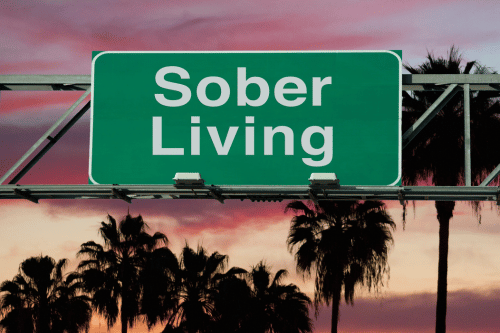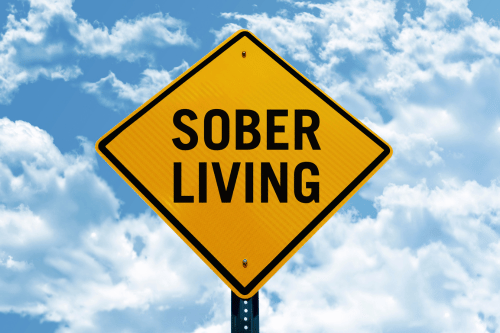

California sober, sometimes referred to as “Cali sober,” is a lifestyle choice gaining traction in recovery circles and among individuals exploring alternative paths to sobriety. But what does California sober mean? At its core, the California sober approach advocates for abstaining from so-called hard drugs while allowing for the moderate use of less harmful substances like marijuana and, in some cases, alcohol.
This harm reduction approach offers a middle ground for those who find complete abstinence challenging or unnecessary for their recovery. It’s a lifestyle that resonates with individuals seeking balance in their journey toward better physical and mental health while avoiding the pitfalls of addictive substances, including alcohol abuse.
California Sober, often referred to as Cali Sober, is a lifestyle choice that involves abstaining from engaging with any addictive substance, except for marijuana. This approach is based on the idea that marijuana can offer therapeutic benefits without the risks associated with more potent drugs or heavy alcohol consumption. The term “California Sober” can vary in definition, with some including occasional use of alcohol or harder drugs. However, the core principle of California Sober is to reduce harm and promote a healthier lifestyle by avoiding substances that are considered more harmful.

The California sober lifestyle embodies a form of harm reduction rather than total abstinence. People embracing this lifestyle may abstain from harmful substances such as opioids and harder drugs while consuming marijuana or drinking alcohol in moderation.
However, for individuals with a history of drug addiction, this approach can pose significant risks, including the potential for relapse when moderation is attempted. For many, this semi-sobriety represents a healthier lifestyle compared to the negative consequences of full-blown substance abuse. It provides a nuanced framework that allows individuals to regain control over their lives without the rigidity of complete sobriety.
At its heart, California sober means prioritizing physical and mental health while avoiding the pitfalls of addictive substances. Unlike the traditional complete abstinence model championed by many addiction treatment programs, this approach acknowledges that substance use exists on a spectrum. However, relying on marijuana can lead individuals to relapse into the use of harder substances, including alcohol and other drugs, thereby complicating recovery efforts from substances like opioids or heroin.
For some, moderate alcohol consumption or marijuana use can coexist with addiction recovery, offering a practical alternative to complete sobriety. This perspective aligns with the broader harm reduction movement, which seeks to minimize the dangers associated with substance use rather than enforce a one-size-fits-all solution.
The concept of being California sober sparks debate within recovery communities. Proponents argue that it’s a practical approach to addiction recovery and harm reduction, particularly for those struggling with substance use disorders involving harder drugs. Critics, however, warn that consuming even “less harmful” substances like alcohol and marijuana can be a slippery slope, potentially leading back to substance abuse or other negative consequences. For this reason, it’s essential to approach California sobriety with mindfulness and a clear understanding of its potential risks and benefits.
Harm reduction is a cornerstone of the California sober lifestyle. This philosophy focuses on reducing the risks associated with substance use rather than enforcing complete abstinence. For individuals recovering from drug and alcohol addiction, this approach provides flexibility in managing their recovery journey. It also encourages individuals to take accountability for their choices while recognizing that recovery is not a linear process.
Moderate substance use is another defining characteristic. This may include drinking alcohol occasionally, consuming marijuana to manage chronic pain or anxiety, or avoiding harder drugs while maintaining a balance that supports mental health and well-being. For some, this approach allows them to engage in social activities and manage stress without reverting to dangerous drug use.
Support groups and recovery circles play a significant role in the California sober lifestyle. These communities provide individuals with resources and encouragement to overcome addiction while navigating this alternative approach to sobriety. Sharing experiences with others who understand the complexities of semi-sobriety can offer a sense of belonging and reduce the stigma often associated with unconventional recovery methods.

Harm Reduction: By avoiding harmful substances, individuals can reduce the risk of withdrawal symptoms, negative consequences, and life-threatening overdoses. This approach prioritizes safety and acknowledges that even small steps can lead to significant improvements in overall health.
Improved Mental Health: For some, moderate marijuana use or alcohol consumption can alleviate stress, anxiety, or chronic pain without turning to dangerous drugs. This flexibility allows for a more individualized recovery experience.
Healthier Lifestyle: California sobriety promotes a semi-sober approach, allowing individuals to maintain control over their substance use while pursuing long-term recovery goals. This balance can lead to better physical and emotional well-being, fostering a sense of empowerment.
Accessibility: For individuals who find complete abstinence daunting, the California sober lifestyle offers a more accessible entry point into recovery. This can be particularly beneficial for those who have experienced setbacks with traditional methods.
Slippery Slope: The flexibility of this approach may lead to overindulgence or a return to addictive tendencies. Without proper boundaries, the line between moderate use and abuse can blur.
Not Medically Recognized: Some addiction specialists argue that the California sober lifestyle lacks scientific backing and may not be suitable for individuals with severe substance use disorders. Medical professionals often emphasize the importance of evidence-based treatments.
Addictive Substances: Even substances like marijuana can carry risks, such as decreased motivation or short-term memory loss. For some, these effects may hinder their recovery progress rather than support it.
Potential for Misuse: The term “California sober” can sometimes be misinterpreted, leading individuals to rationalize harmful behaviors under the guise of harm reduction.
The effectiveness of California Sober is a topic of debate among addiction specialists and researchers. Some argue that replacing one substance with another is a slippery slope and does not address the root causes of addiction. Others believe that California Sober can be a harm-reduction approach that helps individuals reduce their substance use and improve their physical and mental health. Research suggests that California Sober may be effective for some individuals, particularly those who are unable to achieve complete abstinence. However, it is essential to note that California Sober may not be suitable for everyone, particularly those with a history of substance abuse or addiction.
Deciding to embrace the California sober approach is a personal choice that should be made in consultation with addiction treatment professionals. It’s essential to consider factors such as your history with drug and alcohol addiction, mental health status, and long-term recovery goals. For some, this lifestyle may serve as a stepping stone toward complete sobriety or a sustainable long-term solution.
Addiction specialists and medical professionals can provide valuable insights into whether this approach aligns with your recovery needs. They can also help you navigate potential risks and create a harm reduction plan tailored to your unique situation. Open communication with a trusted professional ensures that you’re making informed decisions about your recovery journey.
Regularly assessing your progress is crucial when adopting the California sober lifestyle. Reflecting on your mental health, relationships, and overall well-being can help you determine whether this approach is truly beneficial. Seeking feedback from trusted friends, family members, or support group members can also provide valuable perspectives.
The California sober lifestyle is a nuanced approach to substance use and addiction recovery that emphasizes harm reduction over complete abstinence. By avoiding harder drugs and managing moderate alcohol and marijuana use, individuals can achieve a balance that supports their physical and mental health. However, it’s crucial to recognize the risks involved and seek professional guidance when considering this lifestyle. Whether you’re exploring traditional methods or alternative approaches like California sobriety, Sullivan Recovery is here to help you find a recovery path that meets your unique needs. Our team is dedicated to providing compassionate support and evidence-based care, ensuring that you have the tools and resources necessary for a healthier, more fulfilling life.

At Sullivan Recovery, as an in-network provider we work with most insurance plans, such as:
And More
If you or a loved one are struggling with mental health challenges or substance abuse, reach out to Sullivan Recovery today. Our team of compassionate professionals is here to support your journey towards lasting well-being. Give us a call at 949-836-7180.
California sober is a lifestyle approach where individuals abstain from hard drugs but allow moderate use of less harmful substances, such as marijuana and sometimes alcohol. It focuses on harm reduction rather than complete abstinence.
No, this lifestyle is not suitable for everyone. While it may work for some as a harm reduction strategy, individuals with severe substance use disorders or addictive tendencies may benefit more from complete abstinence and traditional recovery methods.
The California sober lifestyle can help individuals reduce the risks associated with hard drugs, maintain some social and recreational substance use, and improve overall physical and mental health. It is seen as a balanced approach to recovery for certain individuals.
Potential risks include overindulgence in permitted substances like alcohol or marijuana, the possibility of triggering addictive behaviors, and the lack of medical recognition for this approach. Seeking professional guidance is important to address these risks.